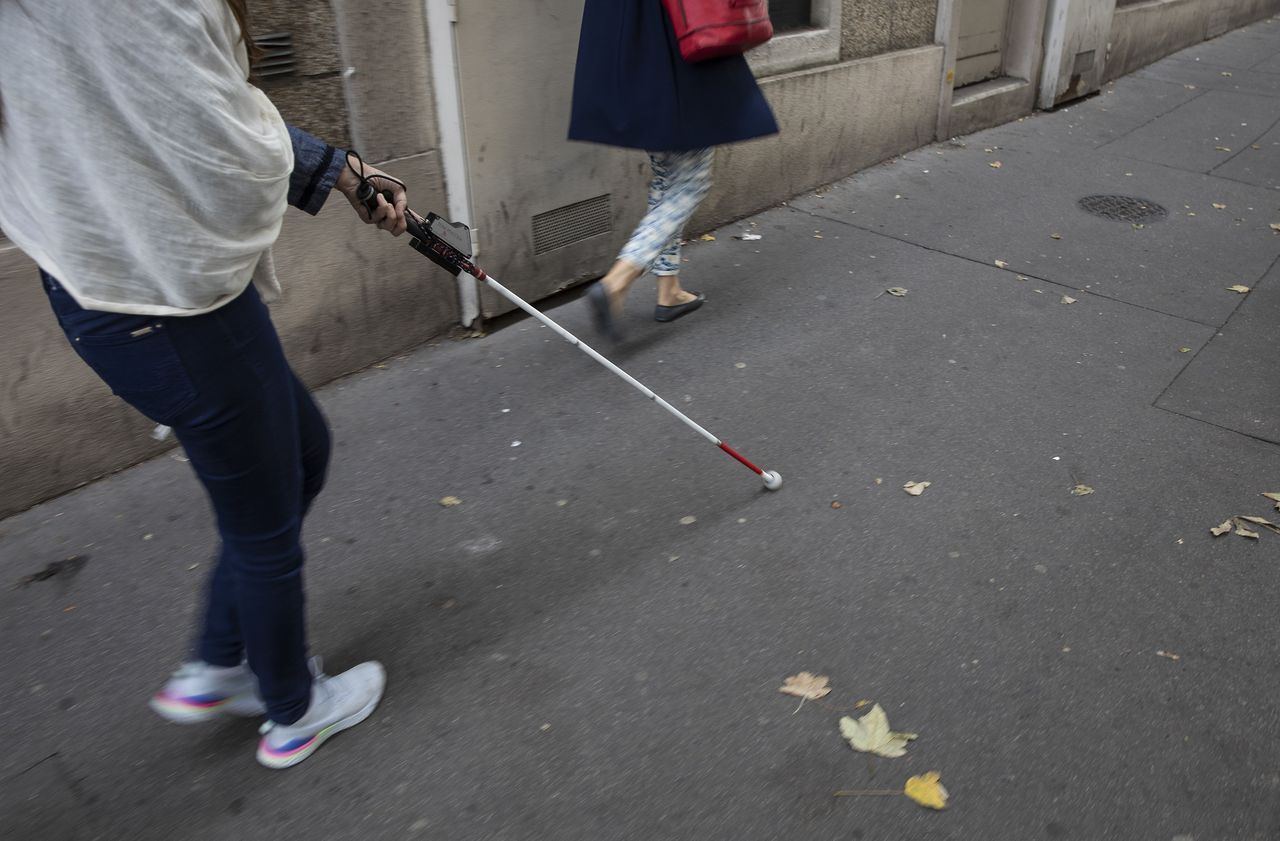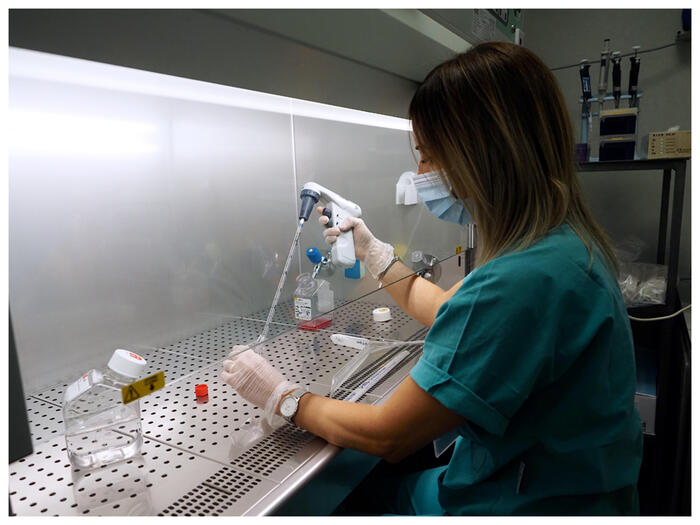He could only perceive the presence of light. A degenerative disease had gradually plunged him into a world without forms or colors. But optogenetics, an innovative technique combining gene therapy and light stimulation, has enabled a 58-year-old blind man to partially regain his sight. He can now locate and touch objects, thanks to special glasses designed for the occasion. This is the first time that this technique has resulted in partial recovery of visual function, say the researchers behind the clinical trial, which involved French, Swiss and American teams.
The patient in the study has retinopathy pigmentosa, a genetic disease of the eye that causes the destruction of photoreceptor cells in the retina, leading to progressive loss of vision that usually progresses to blindness.
Read also In the skin of Kenza, blind for 10 years, mother and controller
In order to restore his sensitivity to light, the patient was injected with the gene encoding a protein, called ChrimsonR, which detects amber light, describes the study, published Monday in the journal Nature Medicine.
Signs of improvement after seven months
Exercises and "seven months later, the patient began to report signs of visual improvement", explain in a press release the Institute of Vision (Sorbonne University / Inserm / CNRS) and the Paris hospital of Quinze-Vingts , specializing in ophthalmology.
“If optogenetics, a technique that has already existed for twenty years, has revolutionized fundamental research in neuroscience (…), this is the first time at the international level that this innovative approach has been used in humans and that its benefits clinics are demonstrated ”, underline the two French organizations, which carried out the clinical trial in association with the University of Pittsburgh (United States), the Institute of molecular and clinical ophthalmology of Basel (Switzerland), the company Streetlab and the French biotech GenSight Biologics.
Retinopathy or retinitis pigmentosa affects one in 3,500 people, according to the European Orphanet database, and can start at any age, with a greater frequency of occurrence between 10 and 30 years.
Therapy will not be offered for a long time
"Blind people with different types of neurodegenerative diseases of photoreceptors" but retaining "a functional optic nerve" will be "potentially eligible for treatment", explains Professor José-Alain Sahel, founder in 2009 of the Institute of vision, dedicated to retinal diseases.
"But it will take time before this therapy can be offered."
Gensight Biologics, specialized in gene therapies for the treatment of neurodegenerative diseases of the retina, "intends to launch a phase 3 trial soon to confirm the effectiveness of this therapeutic approach".
In 2015, a Briton suffering from retinitis pigmentosa and blind for more than 16 years had already regained her sight thanks to a bionic eye.
At the end of 2020, scientists had also designed and tested a brain implant in monkeys that allowed them to perceive artificially created shapes.
A system they hope to test in humans within three years, despite the many hurdles: The electrodes used work about a year before tissue growth around them puts them out of service. The ideal would be a wireless solution: in the current version, the implant is attached to the back of the skull. In addition, this future prosthesis would only work in people who have lost their sight due to an illness or an accident, and not in people blind from birth.




/cloudfront-eu-central-1.images.arcpublishing.com/prisa/ZV3HRONFCNGOLA37LDSKYTU2VY.jpg)




/cloudfront-eu-central-1.images.arcpublishing.com/prisa/547MON3UXRDQTJOVOYDMRMXXZM.jpg)





